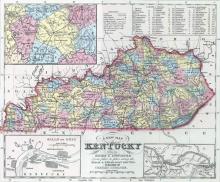
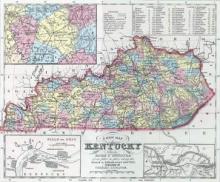
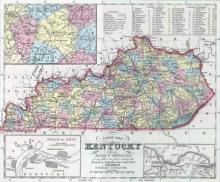
In mid-May 1847, five to six enslaved people fled from Maysville, Kentucky across the Ohio River to free soil. The Covington, Kentucky Register pointed the finger at members of the Northern Methodist Church. A "distinguished preacher of that denomination" was reportedly seen at the very house where five enslaved people escaped, and around the same time.
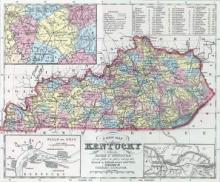
On Saturday night, August 5, 1848, a group ranging in number from 50 to 80 enslaved people fled from near Lexington, Kentucky. Accompanying the group was a white man named Patrick Doyle. The freedom seekers were overtaken and recaptured after a violent confrontation. Reports later emerged suggesting that Doyle had instigated the escape with the plan to betray the freedom seekers and pocket the reward. Regardless, he was sentenced to 20 years in the Kentucky state penitentiary for his involvement in the stampede.
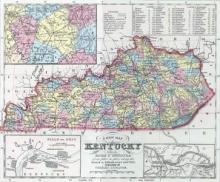
Armed with free passes, "about forty" enslaved people were planning a stampede from Woodford county, Kentucky on Saturday night, October 7, 1848. But the plot was discovered when one enslaved person confessed, and the escape "frustrated" before it could begin.
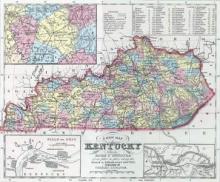
Throughout late October 1848, multiple "stampedes" occurred from near Maysville, Kentucky. One "stampede" saw "some four or five" enslaved people escape, evidently heading for Ripley, Ohio, and "several others" were also missing. Meanwhile, three enslaved people from neighboring Montgomery county were captured near Ripley before they were able to cross the Ohio river.
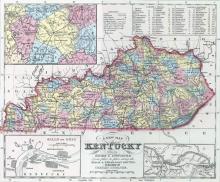
In mid-November 1848, a group of seven freedom seekers passed through Cleveland en route to Canada. Reports do not specify where the escapees originated from, though they likely escaped from Kentucky.
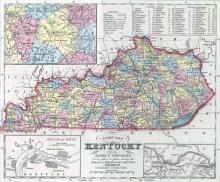
On Saturday night, December 23, 1848, two enslaved people, a man and a woman, escaped from their enslaver in Maysville, Kentucky. Reports suspected that "several others have left the city and county."
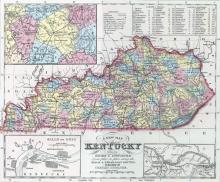
Around the weekend of September 8-9, 1849, multiple escapes occurred throughout Hardin county, Kentucky, in what reports called a "stampede." Two enslaved people escaped from a camp meeting near Rough Creek, and it is unclear if they were recaptured. Then on Sunday, September 9, four freedom seekers escaped from three different slaveholders, but were eventually recaptured. Three other enslaved people escaped on the same day, were overtaken at Louisville, and in a violent encounter slave catchers shot one of the freedom seekers in the face.
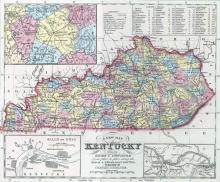
On Sunday, September 9, 1849, a group of eight freedom seekers attempted to cross the Ohio river on a skiff. But the small boat capsized, and four of the freedom seekers were tragically drowned. The other four cried for help, were brought ashore by a passer-by, who ushered them to jail and back into slavery.
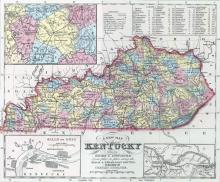
Throughout late April 1851, a number of "stampedes" were launched from Mason and Nicholas counties, Kentucky. On Sunday night, April 27 alone, more than 14 freedom seekers escaped from around Maysville, while "several" others left Nicholas county during the same week.
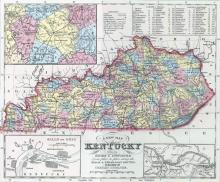
Around May 1, 1851, a "stampede" of roughly 20 freedom seekers took place from Lewis county, Kentucky. Among the group was an enslaved mother and her seven children, ranging in age from 25 to 12. However, after crossing the Ohio river the group was recaptured, with a sizable $4,000 reward doled out to the captors. Following their recapture, the mother and her seven children were sold by a Lewis county slaveholder named Fagan for $4,200.
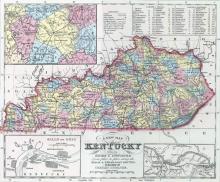
On Tuesday night, August 24, 1852, seven heavily-manacled men escaped from the infamous Arterburn slave pen in Louisville, Kentucky. The Louisville Courier described it as a "stampede," and suspected the seven freedom seekers were "lying out" in cornfields near the city, a common resistance tactic adopted by enslaved southerners. Their ultimate fate is unknown.
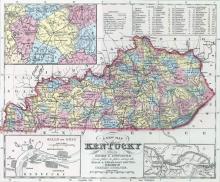
On Tuesday night, September 7, 1852, eight enslaved people--five men, a woman, and two children--escaped from Mason county, Kentucky apparently "in concert," in what the Maysville Eagle termed a "stampede." Although the fate of the eight freedom seekers is unknown, the group escape prompted calls for slaveholders to ramp up their patrols.
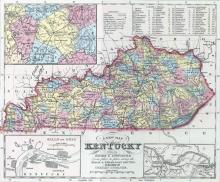
On Sunday night, September 26, 1852, a group of 31 freedom seekers escaped from Augusta and Dover, Kentucky. Slaveholders pursued the freedom seekers to Ripley, Ohio, where they found some of the escapees' belongings and managed to recapture three. But African American residents of Ripley threatened to resist the slaveholders' efforts with violence if necessary, and local authorities refused to cooperate with the white Kentuckians. Despite slaveholders' repeated efforts, it appears most of the 31 freedom seekers managed to successfully elude their enslavers.
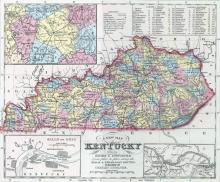
On Wednesday, October 20, 1852, a group of 10 freedom seekers--six men and four women--escaped from "an interior county of Kentucky" and crossed the Ohio river below Louisville. According to one account, two of the men had heard rumors that they were to be sold to Louisiana, and set off with their wives in order to keep their families intact. Reports indicated that they eluded re-enslavement and successfully gained their freedom.
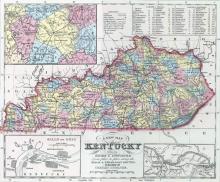
On Sunday, October 31, 1852, approximately 25 enslaved people escaped from Bourbon county, Kentucky on horseback. Some of the freedom seekers were recaptured near Blue Licks, Kentucky, while others were believed to have crossed the Ohio river. Several Kentucky slave catchers visited Cincinnati days later, but apparently without success. The fate of the remainder of the freedom seekers is unknown.

Two enslaved men and a woman escaped from Boone County, Kentucky in November 1852. With assistance from white abolitionist Levi Coffin in Cincinnati, the three freedom seekers boarded a train. Aboard the train, their slaveholder's nephew, Donn Piatt, recognized the three freedom seekers and persuaded them to disembark with him at West Liberty, Ohio. Piatt promised to steady work and vowed to purchase their freedom. Free Blacks nearby, however, rightly doubted Piatt's motives.
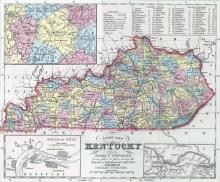
On Saturday night, April 2, 1853, 25 enslaved people escaped from Boone county, Kentucky. Reports suggest they may have travelled north, through Cincinnati to Preble county, Ohio, where Underground Railroad activists reported that "twenty-four Fugitives passed through." This account may have been referencing the same group of freedom seekers.
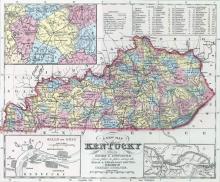
On Saturday night, August 13, 1853, 11 freedom seekers, who were not identified by name, escaped from a series of plantations "sixty miles back" of the Ohio river. Five managed to cross the river near Cincinnati, eluding slave catchers. The remaining six people were apparently recaptured.
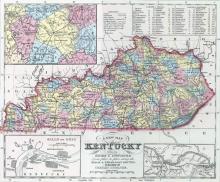
On Sunday night, August 14, 1853, four enslaved people escaped from the Henderson, Kentucky residence of slaveholder Jackson McClain. Weeks earlier, an enslaved woman had attempted to set fire to McClain's house, and now the other enslaved people he claimed were openly resisting through what local papers called a "stampede." Then on Monday night, August 15, reports circulated that "five or six more" enslaved people had escaped from McClain. This second group had reportedly been accumulating supplies for some time. Their ultimate fate remains unknown.
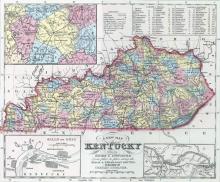
On Wednesday night, September 14, 1853, five enslaved people--including three young women--escaped from near Maysville, Kentucky. They crossed the Ohio river near Ripley, Ohio, and managed to elude slave catchers.
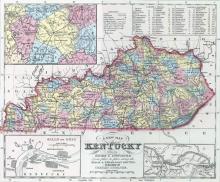
On Monday night, December 12, 1853, nine enslaved people escaped from Covington, Kentucky. Five of the freedom seekers were claimed by Covington mayor Bushrod W. Foley. They apparently traveled near Cincinnati, passing through Cumminsville, Ohio on their way north, reportedly continuing on to Canada.
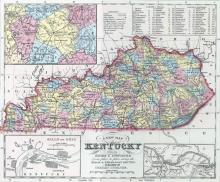
Sometime in early 1854, an enslaved family in Henry county, Kentucky attempted to escape. But word of their plan leaked out, and apparently under torture the freedom seekers admitted that an elaborate plot had been formed by many enslaved people, where "several white persons were to be murdered, and some robbing done by slaves, and then a stampede made for Canada." However, later sources contradicted this report, which was reportedly coerced from the captives, and claimed the attempted escape was limited to a single family unit.

On Saturday night, May 28, 1854, around 20 enslaved people escaped from near Falmouth, Kentucky. Ten were claimed by slaveholder A. Robins, another six held by enslaver Charles A. Aulick, and "several others" by other slaveholding Kentuckians. The freedom seekers were "immediately pursued," though their ultimate fate remains unknown.
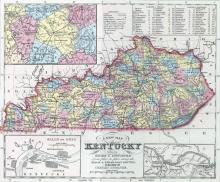
On Saturday night, June 10, 1854, three freedom seekers escaped from near Richmond in Madison county, Kentucky for "parts unknown." One was claimed by slaveholder Colonel D. Irvine, and two by enslaver Samuel Stone. Their ultimate fate remains unknown.
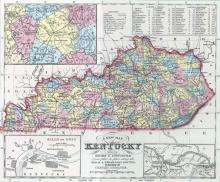
Around Sunday, June 11, 1854, a group of nine freedom seekers escaped from Boone county, Kentucky to Ohio. Once on Ohio soil, however, they were recaptured, brought before U.S. Commissioner John Pendery in Cincinnati, and remanded to slavery.
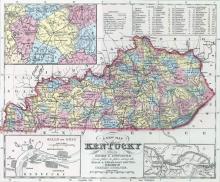
On Tuesday night, June 13, 1854, 23 freedom seekers escaped from "Grant and adjoining counties." Journeying to the Licking River, the freedom seekers "lashed together" a series of canoes, and rowed to the Ohio River, charting a "circuitous route" to northern Cincinnati. Reports suggested that the next day, they were "off on the route to Canada by the underground railroad."
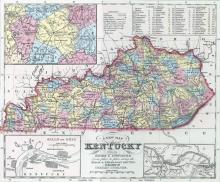
Sometime in late June or early July 1854, a group of seven freedom seekers escaped from Maysville, Kentucky. Their fate remains unknown.
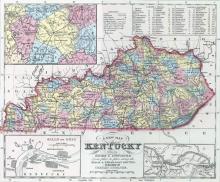
On Sunday, September 3, 1854, nine freedom seekers escaped from Boone county, Kentucky. Reports suggested that they were taking refuge in Cincinnati, but their ultimate fate remains unknown.
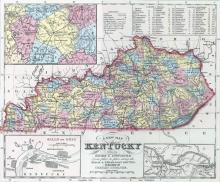
On Saturday night, October 21, 1854, "another stampede" occurred from Bourbon county, Kentucky, in which around 15 enslaved people took flight. One freedom seeker was subsequently captured near Fairview, Kentucky, and two others were sighted, but not recaptured, days later near Mays Lick. The fate of the remaining freedom seekers remains unknown.
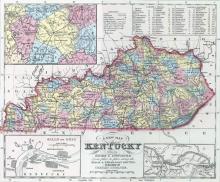
On Sunday evening, November 26, 1854, eight enslaved people--five men and three women--escaped from bondage in Bourbon county, Kentucky. Crossing the Ohio river aboard two skiffs, they reportedly passed through Cincinnati en route for Canada. Their enslaver, James Hatfield, pursued them to Cincinnati on Tuesday, November 28, but returned to Kentucky after learning that the freedom seekers were long since gone.
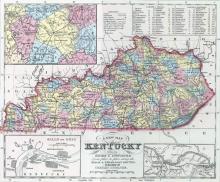
On Wednesday night, June 6, 1855, a group of enslaved people escaped from the Byrnes plantation in Bourbon county, Kentucky. When the slaveholder, Byrnes, attempted to stop the escape, a violent confrontation ensued, where the enslaver was "severely handled" and left unconscious on the ground. The number of freedom seekers, or their names, were not recorded, but they reportedly crossed the Ohio river "about ten miles below" Cincinnati. Byrnes's son arrived in Cincinnati on Friday, June 8, but returned to Kentucky empty-handed.
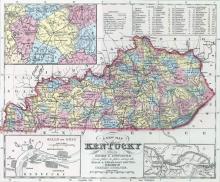
During the late summer and early autumn of 1855, there were numerous "stampedes" from Trimble county, Kentucky. A Madison, Indiana newspaper reported that there were "almost daily" escapes, and noted the escape of two freedom seekers held by Dr. William Ely of Milton, Kentucky.
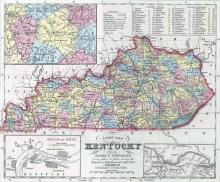
Between Friday night, September 21 to Tuesday September 25, the Louisville Courier tallied seven enslaved people who had escaped from near Louisville, Kentucky. The ultimate fate of the seven freedom seekers remains unknown, but the "regular and constant stampede" clearly unnerved Louisville's slaveholding class.
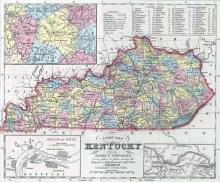
On Sunday night, December 16, 1855, seven enslaved people escaped in a "splendid carriage" from Millersburg in Bourbon county, Kentucky. But on attempting to cross the Ohio river near Maysville, their skiff leaked and filled with water, tragically drowning a woman and her three children. The survivors were re-enslaved.
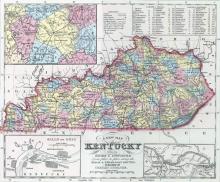
In one of the most famous and tragic episodes of the fugitive slave crisis, a group of 16 freedom seekers escaped from Boone county, Kentucky on Sunday, January 27, 1856. After crossing the Ohio river, eight members of the Garner family were overtaken by a posse of slave catchers and federal officers. Forced to surrender, freedom seeking mother Margaret Garner killed her young child, rather than see the child be returned to the horrors of slavery.
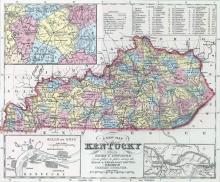
On Friday night, February 1, 1856, six enslaved Kentuckians were "taken with a sudden leaving" and escaped into Ohio. They likely crossed the river by way of the "icy bridge" that frigid winter conditions had created, near California, Kentucky. Their ultimate fate remains unknown.
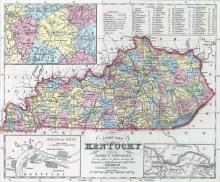
Throughout late January and early February 1856, enslaved people launched a startling series of "stampedes" from Boone county, Kentucky and the surrounding counties. The Ohio river had frozen, temporarily forming an icy "bridge," and enslaved Kentuckians seized the moment for a mass exodus from bondage. Some estimates place the number of freedom seekers as high as 200 during this period. Not all made it to freedom--three freedom seekers who fled from Wyoming in nearby Bath county, on Thursday, February 7, 1856 were quickly recaptured near Fee's Chapel.
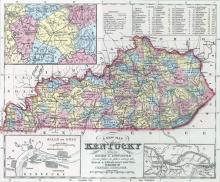
On Sunday, August 31, 1856, five enslaved people, whose names were not recorded, escaped from Jamestown, Kentucky into Ohio. Their fate remains unknown.
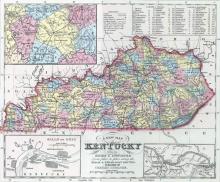
On Sunday night, August 31, 1856, a group of freedom seekers escaped from multiple slaveholders in Hopkins county, Kentucky. There were anywhere from 15 to 20 freedom seekers involved in the "stampede." One enslaved man from Tennessee was captured while attempting to join the group, but the fate of the others remains unknown.
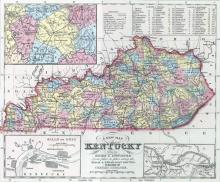
Sometime in early November 1856, two groups of freedom seekers, numbering 26 enslaved people, escaped from northern Kentucky. Fourteen freedom seekers left Kenton county, while another 12 escaped from near Maysville, Kentucky. Their ultimate fate remains unknown.
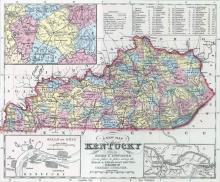
In early February 1857, the frozen Ohio river provided a natural conduit to freedom for many enslaved Kentuckians. A family of six escaped from Covington, Kentucky during the first week of February, though a Cincinnati journalist noted that "numerous other stampedes have taken place along the line of the river."
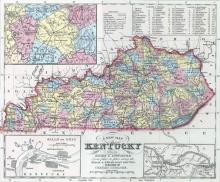
On Sunday night, September 20, 1857, a group of 17 enslaved people escaped from Washington, near Maysville, Kentucky. Slave catchers set out in pursuit, and managed to overtake one of the freedom seekers. However, he "battled" his captors bravely, and managed to badly wound two slave catchers before being overcome and hauled off to the Maysville jail. The remainder of the freedom seekers "made their sailing clear," and apparently eluded recapture.
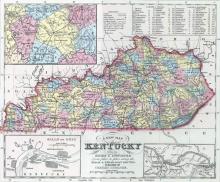
On the night of Thursday, October 1, 1857, five enslaved people escaped in a horse-drawn wagon from the Bourbon county, Kentucky farm of slaveholder Daniel S. Dillon. The five freedom seekers--three men and two women--made their way to the Ohio river, where they abandoned the horse and wagon and evidently crossed the river by skiff. Dillon set out in pursuit, only to find his wagon and horse abandoned near the river. In Cincinnati, presses claimed that the five freedom seekers "have been spirited away by the underground railroad directors."
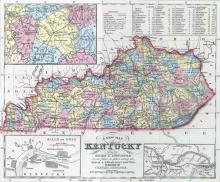
In early May 1858, the Louisville Courier reported on "an extraordinary stampede of the slaves" from Kentucky, claiming that they were fleeing "one, two, three, or a dozen at a time." The pro-slavery newspaper naturally blamed outside agitators, claiming "black republicans are as thick in these parts as wolves on a prairie." Multiple newspapers then reprinted and commented on this story.
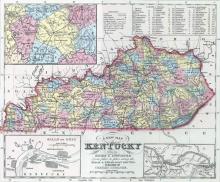
On Saturday, May 21, 1859, four Black men from Cynthiana, Kentucky "made a break" for the Ohio River. Two of them succeeded by crossing near Augusta, Kentucky, but the other two were caught. Local newspapers described this effort as a "stampede of slaves."
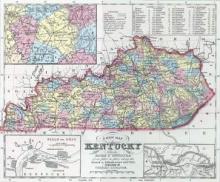
On Saturday night, September 22, 1860, there was "Quite a stampede" in Fleming Kentucky, involving at least four freedom seekers. The local newspaper mocked these runaways as "would be Free Soilers," but named most them: Jake (owned by Thomas R. Botts), Grant or Gran (owned by Walker Thornton but hired out to Isaac Johnson), Lewis (owned by Lake Stockton), and an unnamed fourth individual from neighboring Sherburne. All of these men were captured "within a few miles of the Ohio river."
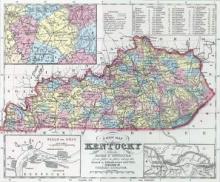
During the first few weeks of October, a Kentucky slaveholder claimed to some reporters that "a change seems to have come over the spirit of the negroes’ dreams in the Southern counties of that State, and large numbers of them are running off." The slaveholder then provided a specific illustration of his claim. "He says that over one hundred and fifty have escaped from one county, and the trouble is increasing."

In May 1864, various newspapers began reporting on the influx of enslaved families at military recruiting centers across Kentucky. One Cincinnati newspaper wrote: "Within a few days the negroes of Kentucky have become impressed with the idea that the road to freedom lies through military service, and there has been a stampede from the farms to the recruiting offices." By April 1865, the Louisville Journal was writing that "Hundreds and thousands of negroes have been received into Camp Nelson from far and near for several months past." That summer,
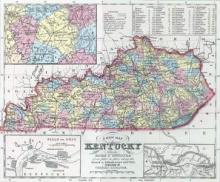
On July 4, 1865, according to Gen. John M. Palmer, the Union commander in charge of Kentucky, the enslaved families of the state expected to be set free. Since slavery was still legal in the state (and would remain so until the ratification of the 13th Amendment in December), this created great anxiety among white residents. So General Palmer decided to issue passes to Blacks allowing them to seek employment in Ohio or elsewhere.
